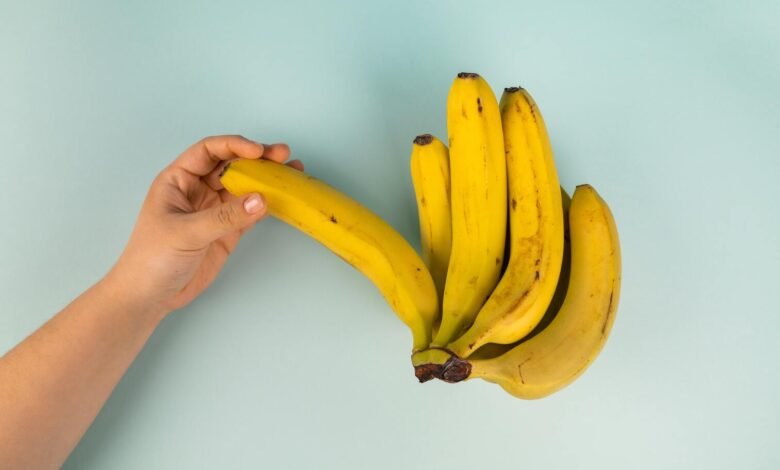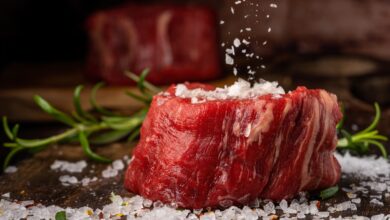
Rich in antioxidants, the banana would prevent the appearance of many diseases. In addition, the sugars it contains would help maintain good gastrointestinal health. From a culinary point of view, there are 2 types of bananas: dessert bananas, like the ones we eat for breakfast, and cooking bananas, like the plantain.
Banana characteristic
- Source of gentle fiber;
- Excellent source of potassium;
- Promotes satiety;
- Regulates transit;
- Rich in vitamins, minerals and antioxidants.
Nutritional and caloric values of bananas
| Nutrients | Raw banana (sweet), 100 g | Raw plantain banana, 100 g |
| Calories | 90.5 | 122 |
| Proteins | 1,06 g | 1,28 g |
| Carbohydrates | 19,7 g | 29,6 g |
| Lipids | < 0,5 g | 0,39 g |
| Dietary fiber | 2,7 g | 2,3 g |
| Glycemic load : Moderate | ||
| Antioxidant power : High |
Focus on the micronutrients contained in bananas
Bananas have their own nutritional profile. Among other things, it contains various nutrients essential to the good health of the body. Among these nutrients, we can mention the following:
- Vitamin B6 (pyridoxine) : bananas are an excellent source of vitamin B6 and plantains are a good source;
- Manganese : bananas are a good source of manganese for women, but only a source for men;
- Vitamin B9 (folate) : bananas and plantains are sources of vitamin B9;
- Vitamin C : bananas and plantains are sources of vitamin C;
- Copper : Bananas and plantains are sources of copper;
- Magnesium : bananas and plantains are sources of magnesium;
- Potassium : bananas and plantains are sources of potassium.








